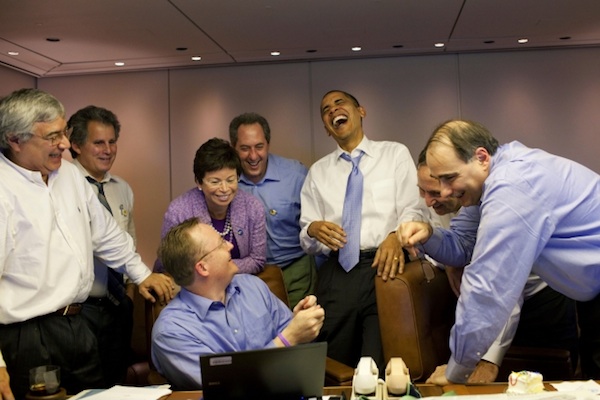The fear and paranoia into which PRISM was born, if continued, will eventually lead the United States to isolation, leaving it stranded within the limits of its power.
By Hakim Bishara
If the NSA were to hack into my email account, as they evidently do, they would find the following message I sent to a friend on July 24, 2008 during a visit to Berlin:
Today I went to Tiergarten Park, near Brandenburg gate, to see Obama’s speech. I was supposed to meet your friend Charlotte there, but she was impossible to detect among the huge masses that flooded the entire area. The news says there were about 200,000 people there. I tried to get a direct view of the stage podium but that was impossible too. Eventually, I found myself sardined into a group of young mothers with their crying babies, who made it difficult to hear anything.
It was quite amazing. People couldn’t stop applauding everything he said. I was very skeptical at the beginning, but later I found myself applauding like all the rest, especially when he spoke of a world clear of nuclear weapons and an equal distribution of wealth. He also admitted some of America’s wrong policies. That was refreshing to hear. And he did it with so much charisma and charm. After the speech I made an audacious attempt to reach the German hot dog deli across the stampede. I completely forgot about Charlotte. It felt like a historic moment. And how are you?
In November of that year, Obama was elected president and I was exhilarated like many others. The Cairo speech in 2009 added another chip of hope and anticipation. Four years and dozens of disappointments later, the PRISM program brings Obama’s fading charm to its final resting place. Without a whiff of caution or apology, the U.S. president announced last week that the surveillance of Internet data “does not apply to U.S. citizens and it does not apply to people living in the United States.” The same president who vowed to repair the United States’ tarnished image in the world, insulted billions of people in the blink of a sentence. Did the president not know that his address would be streamed live across the globe? This soundbite will and should haunt him forever.
The U.S. government considers the Internet as part of its national critical infrastructure, but it also tends to claim some ownership over the expanding World Wide Web. Rather than a mere infrastructure, the Internet is increasingly replacing reality as a public space wherein people create social interactions. To many young people, their virtual identity is more representative and performative than in their real-life conduct. Their social network profile is who they are. It’s no longer a game of avatars. All internet users relinquish their privacy in one way or another. We store our most personal and intimate information onto corporate servers without real control over the uses and abuses of our data. On social networks, the extent of self-exposure and voluntary disclosure of personal data often reaches levels of plain stupidity. But even the most reckless and stupid among us deserve the right to some anonymity, autonomy and even solitude in this public cyberspace. Privacy has never been an end in and of itself, but a means for self-realization and a guarantee for some level of dignity. In its attempts to sustain its world hegemony, the U.S. violated all standards of cyber-ethics without thinking twice.
Beyond the brute invasion of privacy, the insult and the justified uproar that followed, the PRISM program scandal is another indication of America’s declining power. Going as far as monitoring the emails, IMs and Internet searches of every single individual out there does not symbolize America’s might, but rather its weakness. The fear and paranoia in which PRISM was born, if continued, will eventually lead the United States to isolation, leaving it stranded within the limits of its power. Since the awful trauma of 9/11, successive U.S. governments have conducted policies that only stretched their list of enemies. Instead of spying on all of us while preaching democracy and human rights, the U.S. government must for once try to fathom the origins of hostility towards it. To name a few: the war on Iraq; the drone attacks in Pakistan and Yemen; the unwavering support of the Israeli occupation of the Palestinian territories; and now, PRISM. These violent delights have violent ends.
At this point, it is still unknown how the PRISM program operates, and by which methods and standards real threats are detected. All we know is that we, who do not live in the U.S. or have American passports, are potential suspects and that our privacy is in the hands of the American congress and judicial system.
These days I happen to be in Germany again. President Obama recently visited the country and delivered a faint John Kennedy-like speech at Brandenburg Gate. I wasn’t the only one who chose to skip the event.
Hakim Bishara is a Palestinian freelance journalist and scriptwriter living in Israel. He has worked over the years in the Israeli and international press and was involved in several documentary films, including: Palestine the Lost Bride(AlJazeera), The Heart of Jenin (Eikon) and The Great Book Robbery (2911 Foundation).

